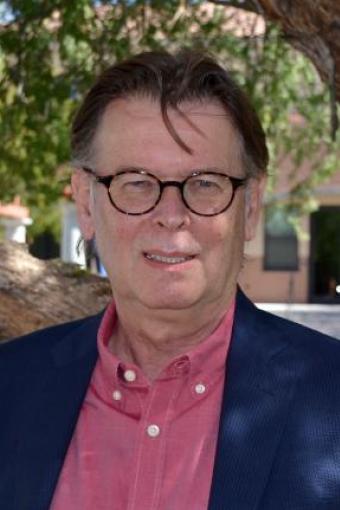 Lectures
Lectures
“Integrating Buddhism into Chinese Culture or How Did Buddhism Become Chinese? Buddhist Junzi (法門君子) & The Administration of Buddhism.” Within the framework of a lecture series integrated in the MA course ‘Culture in Perspective: South and East Asia lecture‘
The question of Buddhism’s role in Chinese culture and society was raised when Buddhism first entered China in the first century, and has persisted down to the present day. Throughout its history in China, Buddhism endured the vicissitudes of imperial politics, courting the favors of the emperor and well-placed members of the cultural elite, on the one hand, while inviting the wrath of its detractors, on the other. This presentation explores a Buddhist response to these challenges through an examination of the Buddhist literati-monk Zanning’s 贊寧 (919-1001) Topical Compendium of the Buddhist Clergy (sometimes translated as Brief History of the Sangha) compiled in the Great Song dynasty (Da Song Seng shilüe 大宋僧史略; CBETA T vol. 52, no. 2126), written at the request of Song emperor Taizong 太宗 (r. 976-997). The paper details Zanning’s argument for accepting Buddhism as a Chinese (rather than foreign) religion, as reflecting and enhancing native Chinese values rather than conflicting with them (as its detractors claimed). A number of subjects addressed in the Topical Compendium are addressed–– the performance of Buddhist rituals at state ceremonies, the inclusion of Buddhist writings in Chinese wen 文 (letters or literature), proper Buddhist customs and practices and their contributions to the aims of the Chinese state, and the epitome of integration of Buddhist elite into the Confucian ideal of gentlemanly civility, the Buddhist junzi 法門君子.
This lecture was integrated in ‘Culture in Perspective: South and East Asia’, an MA course in the spring term curriculum of Oriental Languages and Cultures. The purpose of this course is to confront students with different research fields in the study of East Asian and South Asian history, culture, economics and politics by means of twelve lectures by national and international scholars. The course is taken up by students majoring in Chinese, Indian, and Japanese studies.
“A New Look at Old Traditions: Reimagining East Asian Buddhism through Hangzhou.” Ghent Centre for Buddhist Studies lecture series
The history of Buddhism incorporates East Asia in meaningful ways, but still tends toward Indo-centrism in its overall conception. This makes sense when one considers India as the birthplace and homeland of Buddhism and the development of key teachings and traditions. Yet, the history of Buddhism covers 2500 years, and for the last 1000 years or more, India has ceased to be a significant source of Buddhist inspiration, and figures primarily in passive memory rather than as active agent. This is especially true in the case of China, which actively reimagined Buddhism in unique and indigenous ways to form an intrinsically authentic form of East Asian Buddhism.
Hangzhou, a former capital of China during the Song dynasty (960-1278), was the focal point for these developments. From the Hangzhou region, new forms of Buddhism spread throughout East Asia, especially to Japan and Korea. As a result, when we speak about East Asian Buddhism today, we are largely speaking about forms of Buddhism that were initiated in Hangzhou, and adopted and adapted in other regions and time periods. The most prominent among these is Chan Buddhism, known in Japan as Zen and Korea as Sŏn, the practice of which from the 10th century on is indebted to Buddhist developments in Hangzhou.
The presentation reviews how the history of Buddhist Studies has neglected and marginalized East Asian Buddhism and the role of the greater Hangzhou region. It suggests how the Hangzhou region became a Buddhist center, a new Buddhist homeland, and a hub for interactions with Korea and Japan that were instrumental in the development of unique forms of East Asian Buddhism.
Text reading seminar (with PhD students)
This visit was made possible due to the generous support of the Tianzhu Foundation.
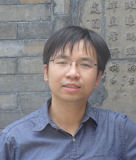 Dr. Yi Ding received his bachelor’s degree from Fudan University (2008) and his PhD in Religious Studies from Stanford University (2020). He is currently Assistant Professor at DePaul University.
Dr. Yi Ding received his bachelor’s degree from Fudan University (2008) and his PhD in Religious Studies from Stanford University (2020). He is currently Assistant Professor at DePaul University.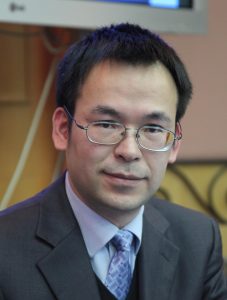 Professor XUAN Fang 宣方 is a research fellow of the Institute for Advanced Studies in Religion, Renmin University of China, as well as the executive member of Journal of Religion. His main academic interests focuse on Chinese Buddhist meditative tradition and Modern Chinese Buddhism, particularly Humanistic Buddhism (renjian fojiao), in which fields he published a book and more than 40 articles including. Furthermore, he is also guest professor of many Buddhist academic institutes such as the Institute of Chinese Buddhist Culture, Institute of Peking Buddhist Culture, Peking University, Chinese University of Hong Kong, Xiamen University, and Yunnan University. Xuan Fang will give lectures, seminars and workshops on a variety of topics and at various levels during his stay at Ghent University (6 January–3 March 2020). He will also closely cooperate in the framework of the current research projects.
Professor XUAN Fang 宣方 is a research fellow of the Institute for Advanced Studies in Religion, Renmin University of China, as well as the executive member of Journal of Religion. His main academic interests focuse on Chinese Buddhist meditative tradition and Modern Chinese Buddhism, particularly Humanistic Buddhism (renjian fojiao), in which fields he published a book and more than 40 articles including. Furthermore, he is also guest professor of many Buddhist academic institutes such as the Institute of Chinese Buddhist Culture, Institute of Peking Buddhist Culture, Peking University, Chinese University of Hong Kong, Xiamen University, and Yunnan University. Xuan Fang will give lectures, seminars and workshops on a variety of topics and at various levels during his stay at Ghent University (6 January–3 March 2020). He will also closely cooperate in the framework of the current research projects.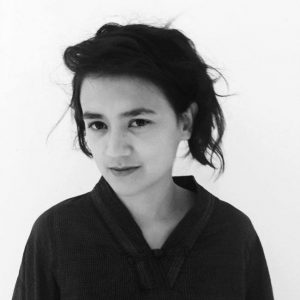 Dr. Lia WEI is currently based at the Department of Archaeology and Museum Studies in Renmin University of China, conducting research and teaching on the archaeology of culture contact and the intersection between intangible and material cultural heritage, as well as contributing to several research-oriented, educational or curatorial collaborations between Renmin University and European partners (Université de Genève, Ghent University).
Dr. Lia WEI is currently based at the Department of Archaeology and Museum Studies in Renmin University of China, conducting research and teaching on the archaeology of culture contact and the intersection between intangible and material cultural heritage, as well as contributing to several research-oriented, educational or curatorial collaborations between Renmin University and European partners (Université de Genève, Ghent University). Dr. Yu-chen Li received her Ph.D. degree in 2000 from Cornell University. She is currently the chair of the Graduate Institute of Religious Studies at National Cheng Chi University. Yu-chen Li focuses on gender issues in Buddhism, such as the development of Bhiksuni sangha and Buddhist interaction with local culture through women. Her recent research deals with the conversion process of vegetarian women to Buddhism in 20th century Taiwan and Southeast Asia. Yu-chen Li published numerous works such as The Buddhist Nuns in Tang Dynasty, The Narrative of Sexuality and Desire among Sacred/Ordinary Men and Women, and Buddhism and Women in Postwar Taiwan, as well as more than 40 papers. Professor Li will contribute to the Doctoral School Specialist Course “Women and Nuns in Chinese Buddhism” (3-6 June 2019) as guest lecturer.
Dr. Yu-chen Li received her Ph.D. degree in 2000 from Cornell University. She is currently the chair of the Graduate Institute of Religious Studies at National Cheng Chi University. Yu-chen Li focuses on gender issues in Buddhism, such as the development of Bhiksuni sangha and Buddhist interaction with local culture through women. Her recent research deals with the conversion process of vegetarian women to Buddhism in 20th century Taiwan and Southeast Asia. Yu-chen Li published numerous works such as The Buddhist Nuns in Tang Dynasty, The Narrative of Sexuality and Desire among Sacred/Ordinary Men and Women, and Buddhism and Women in Postwar Taiwan, as well as more than 40 papers. Professor Li will contribute to the Doctoral School Specialist Course “Women and Nuns in Chinese Buddhism” (3-6 June 2019) as guest lecturer. Lectures
Lectures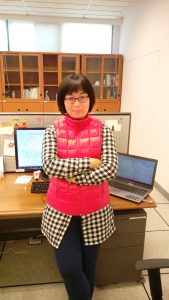 Lin Ching-hui received her PhD from the Chinese Culture University (Taipei). Her dissertation is titled A study of political views in Laozi, Zhuangzi and The Yellow Emperor’s Four Classics. She is project assistant at the Dharma Drum Institute of Liberal Arts. Currently she works as an editor for the Database of Medieval Chinese Texts Project. Lin Ching-hui is also Assistant Professor at the Department of Chinese Literature of the Chinese Culture University.
Lin Ching-hui received her PhD from the Chinese Culture University (Taipei). Her dissertation is titled A study of political views in Laozi, Zhuangzi and The Yellow Emperor’s Four Classics. She is project assistant at the Dharma Drum Institute of Liberal Arts. Currently she works as an editor for the Database of Medieval Chinese Texts Project. Lin Ching-hui is also Assistant Professor at the Department of Chinese Literature of the Chinese Culture University.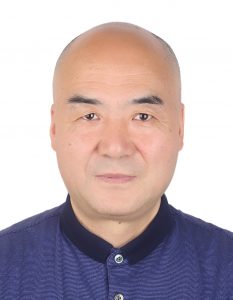 Hanqing, Lei graduated from Fudan University at the School of Chinese Language and Literature. He was a visiting scholar at UC Irvine in 2011, and at the Research Institute of Zen at Hanazono University in Japan. Currently, he is a professor at the School of Literature and Journalism at Sichuan University, a researcher in the Institute of Chinese Folk Culture, and a PHD student supervisor in Chinese philology, linguistics and applied linguistics.
Hanqing, Lei graduated from Fudan University at the School of Chinese Language and Literature. He was a visiting scholar at UC Irvine in 2011, and at the Research Institute of Zen at Hanazono University in Japan. Currently, he is a professor at the School of Literature and Journalism at Sichuan University, a researcher in the Institute of Chinese Folk Culture, and a PHD student supervisor in Chinese philology, linguistics and applied linguistics.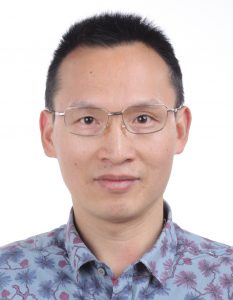 Length of Stay: March 23-May 25
Length of Stay: March 23-May 25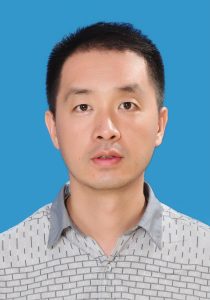 Length of Stay: April 3-June 29
Length of Stay: April 3-June 29